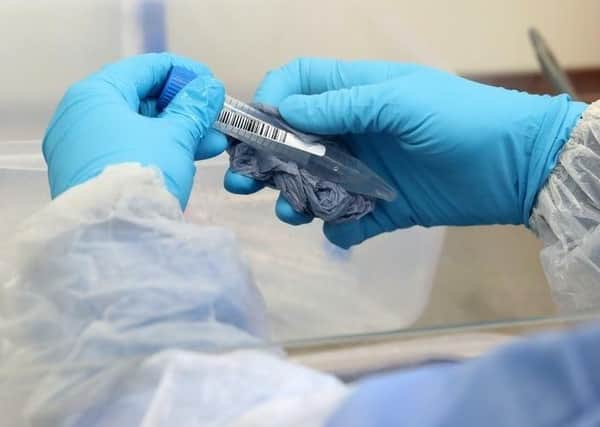Lincolnshire coronavirus: Death figures elude bosses


A recent national review saw more than 5,000 deaths across the UK taken off the record as “coronavirus-related”.
Now deaths will only be recorded on the government’s dashboard if they take place within 28 days of a positive test.
Advertisement
Hide AdAdvertisement
Hide AdHowever, the revised deaths data does not yet show the numbers at a local level, or if any changes have occurred at all.
Lincolnshire County Council’s assistant director of public health Tony McGinty said: “I asked Public Health England (PHE), when they will be releasing data to a Lincolnshire or sub-Lincolnshire level again and the short answer was they weren’t sure when that was going to be available — so we still do not have the updated numbers.”
Prior to their disappearance from the dashboard, the government’s death tally for Greater Lincolnshire postcodes was 466, broken down as:
323 from Lincolnshire (no change)
107 from North Lincolnshire (no change)
36 from North East Lincolnshire (no change)
It comes as parts of PHE have been merged into a new Health Protection Institute, along with NHS Test and Trace, following intense scrutiny over its response to the crisis.
Advertisement
Hide AdAdvertisement
Hide AdThe new organisation will, government bosses said, pool experts and help gather “much needed new investment”.
However, critics and PHE defenders have placed the blame for failings elsewhere, including government “meddling”.
It is the latest in a long line of struggles by health bosses in the county to get local data from national organisations.
Although they said it has improved over the past few weeks, early on health bosses were frustrated by difficulties getting case numbers, testing records and other accurate intelligence records.
Advertisement
Hide AdAdvertisement
Hide AdMr McGinty said: “Especially early on the pandemic we struggled to get very local data in a really timely fashion, which made it obviously more difficult for us to understand the risk in Lincolnshire and communicate with people really accurately about what was going on.
“That obviously was frustrating from a local public health team’s point of view. We’re very dependent on intelligence, and when we can’t get access to intelligence that’s frustrating for us.
“It’s got a lot better, particularly in the last four or five weeks or so, the data flow is now much better than it than it was.”
He said that now most local data was “good” his team were able to predict a number of things, including some of the recent lockdown relaxations.
Advertisement
Hide AdAdvertisement
Hide AdHowever, they were “taken aback” by the announcement of the Health Protection Institute and were now waiting to hear more about what that meant from central government.
“The idea […] seems like a sensible thing to do from a coordination point of view, but other than that, we are we are still very much fixed on some broad principles, based on what we know about what is going to be happening,” said Mr McGinty.
“There’s an awful lot we don’t know still.”